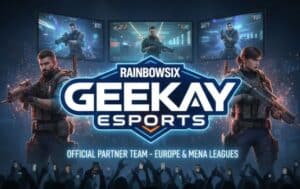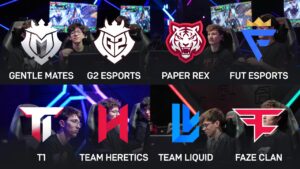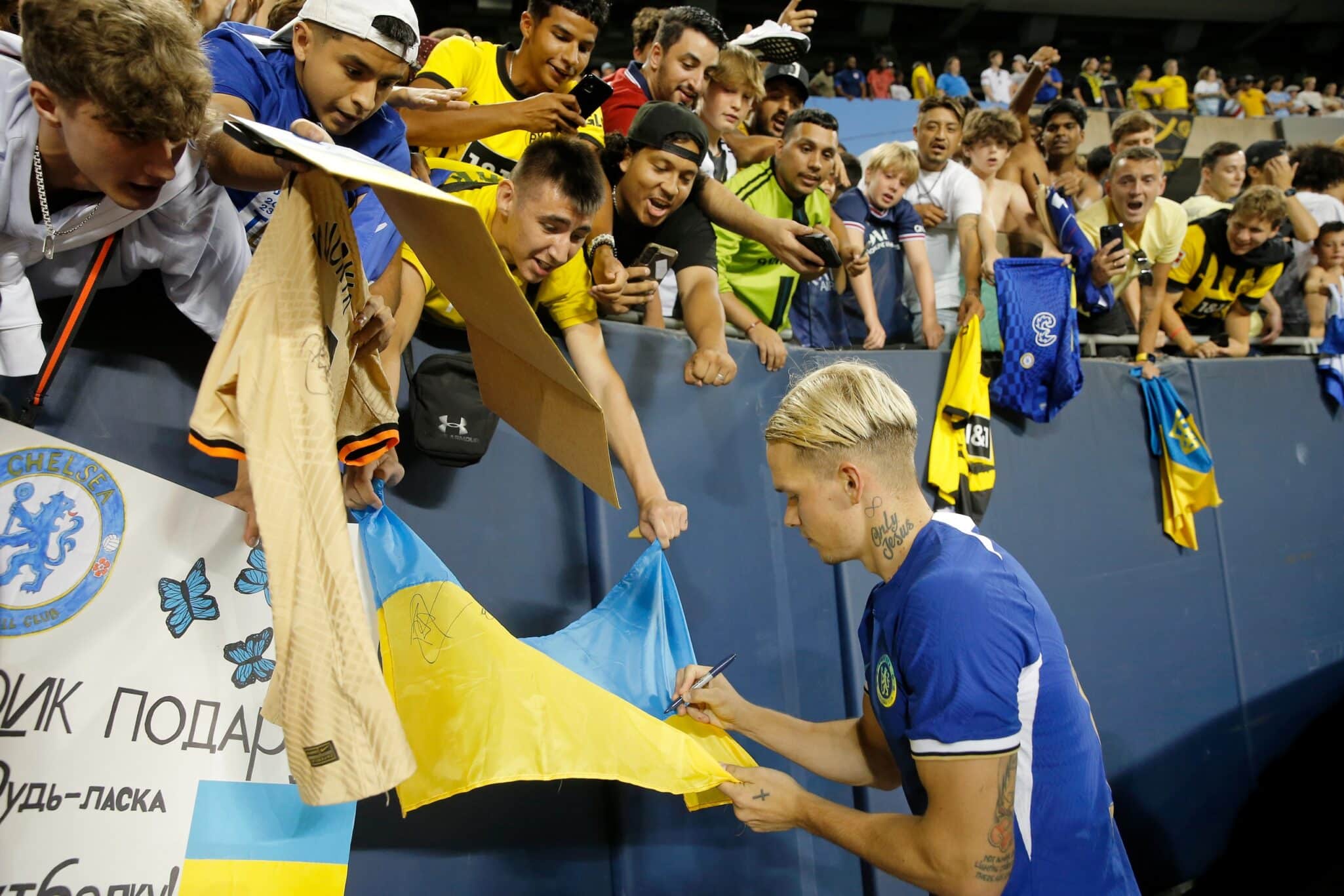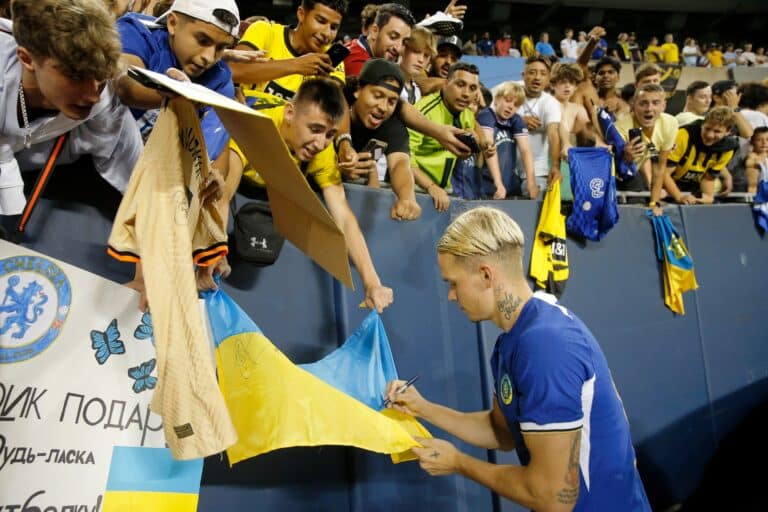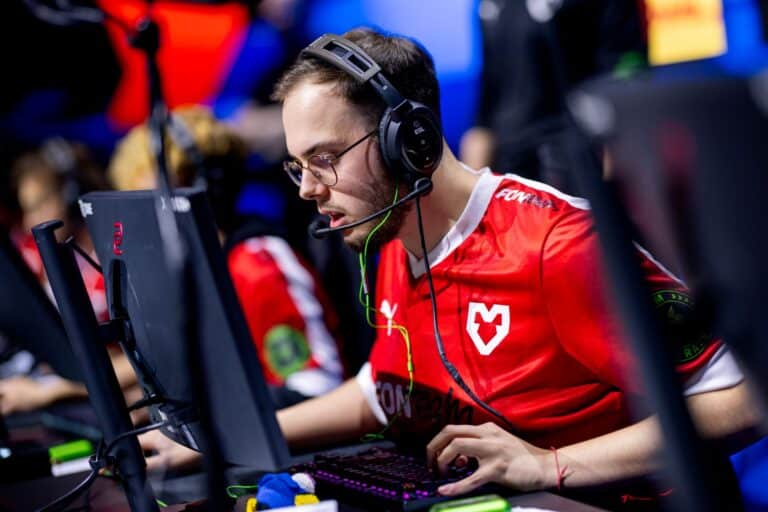“Nothing is impossible” – LunaCasts examines esports diversity and opportunity
Hannah Marie ZT, Senior Editor
Last Updated: 11/02/2026
As Pride Month draws to a close, Esports News UK spoke to League of Legends caster and analyst LunaCasts about diversity and inclusion in esports.
Introducing LunaCasts
LunaCasts has a wealth of experience on both the competitive and broadcast sides of League of Legends. Therefore, she holds invaluable insights on navigating the varied experiences in competitive gaming.
She has also recently founded UK-based esports organisation Celestial eSports.
Can finally announce that, alongside @CliffDiff, we have started our own organisation, Celestial eSports (@CTLeSportsEN)! Super excited for this newest venture, and really really happy to be doing it alongside such a good friend. Any and all support appreciated! ❤️
— Drew "Luna" Wilcox🏳️⚧️ (@CTL_Luna_) March 29, 2025
LunaCasts and fellow founder Cliff centre this organisation around supporting diverse grassroots competition and an inclusive environment for competitive players.
As the global esports community transitions out of Pride Month, Esports News UK presents the following interview as a reminder that the fight for greater inclusivity and a more positive gaming environment continues throughout the year.
How did you initially gravitate towards the world of esports?
Esports wasn’t something I was really aware of until, at the age of 14 or 15, when a friend of mine suggested I start playing League of Legends.
League is, you know, where all dreams go to perish at the end of the day.
Anyway, my friend said that I should get into League of Legends. Through passively playing and finding people I could play with, I became aware of what was, at the time, EULCS (European League of Legends Championship) and the NALCS (North American League of Legends Championship), and the competitive scene behind it.
I would just sit and host watch parties with friends of different broadcasts.
I had a relatively vested interest in it, but I never considered ending up in esports myself. However, someone turned to me during one of these esports watch parties and asked if I had considered going into coaching or analysis.
They said that I was speaking like someone with a knowledge of the game above what you would expect for someone who, at the time, had peaked at silver rank.
From there, it spiralled. That winter, I put out my first LFT (“looking for team”) as a coach, and I’ve not been able to escape since.
So, what have been some of the highlights for you so far working in esports and developing your identity as LunaCasts?
I’ve jumped from role to role a good bit.
I started as a coach, then I jumped to colour casting. Following that, I started play-by-play casting, and I’ve more recently done team management.
I think the biggest highlight for me has to be the coaching aspect of things. Seeing the growth of a team and feeling that high when all the hard work that you and your players put in pays off.
In 2021 or 2022, during the summer, I was with Munster Rugby Gaming in the NLC (North European League of Legends Championship) Second Division. We were against two rosters that had spent egregious amounts to try to win.
My team ended up coming third, despite having to compete with a sub for that series.
That might be the highlight of my career so far.
A very close second is having the opportunity to work at a LAN as a play-by-play caster last July with BlackBloxer for British esports.
The NLC, which you coached in, has gone through a lot of transformation in its time. However, it has become a valuable stepping stone into the professional leagues. It has also become a more accessible league for players from minority backgrounds. What importance does the NLC have in competitive inclusivity?
It’s one of the easier-to-access Leagues. The NLC has several feeder leagues.
Through the RPS (Regional Promotion Series), introduced in 2023, you still have feeder leagues going into NLC Division 2, which then gives you the chance to progress to NLC Division 1.
📢NLC RPS Format & Schedule
— NLC - Northern League of Legends Championship (@NLClol) October 26, 2023
Our National Leagues are closing in on their last stages, meaning that the NLC Regional Promotion Series is coming up!
This will be the first of its kind, so check out all the information and stay tuned👇
➡️https://t.co/JRJ6VIInS7 pic.twitter.com/QPlMjSdUrU
I think it’s the most accessible of all the regional leagues, but I’m not sure if they do something specific to attract diverse teams or even specifically female talent.
Granted, it is a credit to the league that these teams feel happy enough to enter the league and contend with some of the North’s best.
I found that it was a very mixed bag.
As with everything, you’d have some people who would support you unconditionally, and you’d have some people who would prey on your downfall.
Even after coaching, I worked a few NLC broadcasts. There was always a mixed reception when I was on broadcast in the stream chat. Some people were incredibly excited. From others, there were offhanded comments or direct insults.
Nevertheless, the NLC does open the doors to more women and non-binary talent because there are so many routes to qualify and progress.
You mentioned the very black and white experience of undying support or hate. What is your advice to people at the start of their esports career who are encountering this black and white approach for the first time?
The most important thing to remember is that at a base level, respect is earned. It’s not an expectation, and it is a two-way street. If someone doesn’t respect you, you do not need to respect them back.
My best advice is to not interact with people who make your life harder.
One of the worst things I’ve done is spending days reviewing my past streams to identify areas for improvement, while simultaneously checking the chat for feedback.
Coming across a particularly good or bad comment would have a really strong effect on how I was feeling. I’d either get much happier or significantly more upset, depending on the comment.
I’ve spoken to players, I’ve spoken to staff, I’ve spoken to other organisation managers and owners. Everybody has different opinions. Most of them generally aren’t going to care about those comments in relation to you.
Anyone who does make those external comments your problem are the people you pay the least attention to.
Ultimately, you can’t change anybody’s mind about who you are. As long as you are confident and happy with who you are, you will find strength. They will have to live with their opinions on who should or shouldn’t be there – you don’t have to interact with them again.
It’s a good approach to be able to release and distinguish between what people say and how you feel.
Esports is certainly growing into a more diverse competitive arena – are there any particular leagues, activations, or projects that have caught your eye in this push to diversify the industry?
I can only really speak on League at present. I think the Equal Esports Cup for League is one of the best driving forces for diversity and has been for as long as it has been around.
You have a lot of women and non-binary leagues for League of Legends specifically. There’s the Coupe des Etoiles, the Nexus Tour, the Equal Esports Cup, and now League of Legends Game Changers is coming soon, which already exists for Valorant, of course.
Introducing League of Legends Game Changers: a new era for women across EMEA in LoL!
— LEC (@LEC) June 19, 2025
Read: https://t.co/673W8P6At1 pic.twitter.com/npv5wOGZ4L
These leagues and tournaments have been invaluable in demonstrating a desire and a drive for a more diverse competitive scene. It also shows that teams are willing to bring on marginalised players in their rosters.
A really good example of that is in the UKEL Division One split. Not the currently ongoing split, but the one just passed. The Belfast Storm’s mid-laner, Vixen, is a well-known female player. She competed for them in the UKEL.
An organisation’s willingness to bring on marginalised players if they fit the team is already a really big step in the right direction. Having these more diverse tournaments really does allow for that willingness to come to life.
It shows that there is a want for it.
There are players who go out of their way to play and to make themselves known, even if it’s not necessarily at the highest level. We can reach a point where it is at the highest level, or it can be at the highest level.
There is often backlash surrounding these events as well. In your own opinion, what are the key reasons why these gender minority leagues and tournaments are so important?
It allows marginalised or more diverse groups to have a safe space where they can compete.
If you compete in mixed leagues or standard leagues that we see, you are much more open to backlash, criticism and, without a better term, hate speech.
However, these people won’t go out of their way to watch a marginalised gender orientated event. They won’t go out of their way to watch a women’s cup tournament.
So, it gives you somewhere safe where you can be supported, you can play, you can prove yourself, you can show your drive, and you can show your love of the game. But, you can also meet other people who are the same from either a team perspective, a player perspective, a broadcast perspective, or a staffing perspective.
It’s incredibly important to have a place where marginalised groups feel comfortable, safe, and motivated.
Without that, the leagues don’t exist in the first place.
Did you have certain people who inspired you in your League of Legends journey? Or, did you focus all of your energy on complete self-authenticity, the “LunaCasts” brand?
When I first started out, I wasn’t out publicly. I wasn’t even really too aware myself of who I was or what I was. I was 18 or 19 at the time.
So, you know, I was still doing a lot of self-discovery as well.
But I’ve always tried to be authentically 100% myself.
I’ve had people that I, you know, I would always look to for ways that I could be better, but I’ve never had just one person that I put my eyes on and say I want to be exactly like this person.
Being authentically yourself is such a big thing in esports.
As a coach, I was very much myself. I tried to be close with my players, not just on a professional level, but also personally, and be there for them if they needed. I wanted to make sure they felt as supported as they could.
As a caster, I make sure that the people I’m working with are all on the same page. We all get along, because there’s nothing worse than trying to work with someone who you don’t get along with.
Now with the founding of Celestial, nothing is more important to me than being myself and showing the people that put their trust in myself and the organisation that I am someone that they can trust.
Just being myself and being authentic has never led me astray.
Of course, there will be people who just bash you for being different. That’s never easy, but there will be infinitely more people who will stand by you and support you.
It’s all about lifting each other up, helping one another, and making each other feel like every step is a step in the right direction.
I’m trying to give that back now with Celestial at a more amateur level.
We’ve had a lot of marginalised people join the team. Knowing that they feel happy and safe with us is the single best indicator that being myself is working, I could have ever asked for.
Can you tell me about any upcoming projects with Celestial and what you’re really driving forward with that organisation?
It’s relatively new. We started up a couple of months ago, myself and my close friend. I met him playing amateur competitive at the start of last year in the Valanths League, and we hit it off really quickly.
We always see things very similarly. So, when he posed the question, ‘Do you want to start something together?’ it was a no-brainer for me.
I thought about it for 20 minutes. I was like, yeah, this is the correct decision.
The first of our rosters for @ValanthsLeague is made and ready to ship!
— Celestial eSports (@CTLeSportsEN) May 12, 2025
Here's a little announcement for you all to enjoy, you'll see more throughout the week 😉
In Valanths League Division 4 - Celestial Vacuity!https://t.co/yf7EydgyU1
Everybody wants their organisation to be successful. But, on a deeper level, I want to foster an environment that people want to stay in.
Retention and longevity are terms you’ll hear thrown around a lot. At the core of retention and longevity are people who feel happy, comfortable, safe, and trust the leadership.
I really want to give people that community, that group of people who they know they can always come back to, that they trust.
Even if things don’t work out on a larger scale, it will always be there at an amateur level to allow people the chance to do what they love.
People might have the drive to compete, but they don’t know where or they don’t know who to trust. They might be too scared to get into it because they don’t know anybody.
We want to give people the chance to get involved and try something new.
Everybody is supporting everybody, and I want that to continue.
Importantly, I want to keep showing that being part of a marginalised group, whether that’s being trans or being part of somewhere else in the LGBTQ community, or any other kind of marginalised group, shouldn’t hold you back.
There are people out there who will support you, trust you, and stand by your side.
Nothing is impossible if you have the drive, passion, and set your mind to it.
Hannah Marie ZT, Senior Editor
Hannah is a journalist specialising in the esports, gaming, and technology sectors. Working for outlets such as Dot Esports, Esports Insider, and of course ENUK, she has developed a love for wider esports, Apex Legends, and advocating for women's esports initiatives. You may have seen her at various esports and gaming events, including ALGS LANs, ESI London, EGX, and watch parties.
Stay Updated with the Latest News
Get the most important stories delivered straight to your Google News feed — timely and reliable





From breaking news and in-depth match analysis to exclusive interviews and behind-the-scenes content, we bring you the stories that shape the esports scene.
Monthly Visitors
User Satisfaction
Years experience
Latest League of Legends
